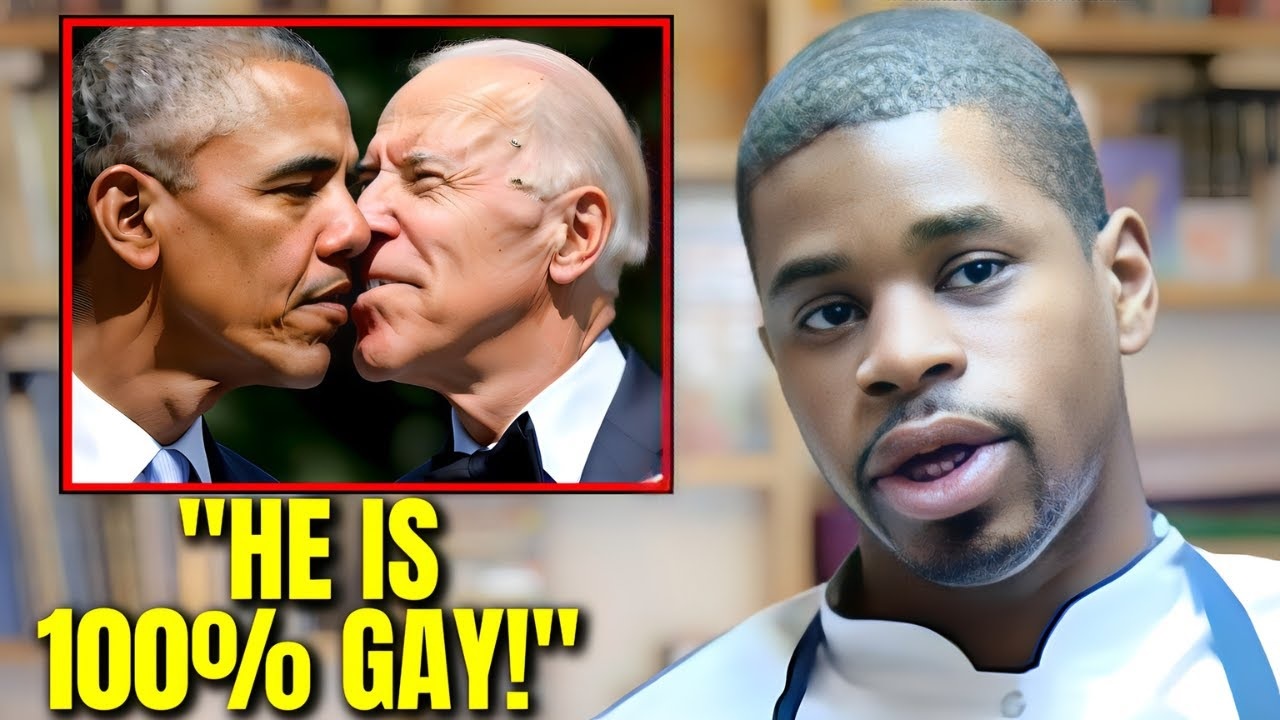Unraveling the Web of Conspiracy Theories Surrounding Chef Tafari Campbell’s Tragic Death
The recent and mysterious drowning of Tafari Campbell, former Chef of Barack Obama, has ignited a storm of conspiracies and speculations on the internet. Despite 11 days passing since Campbell’s tragic demise, authorities remain tight-lipped, withholding crucial details and citing an ongoing investigation, leading to widespread suspicions of a potential cover-up.

The online community has woven a complex narrative, drawing parallels between Campbell’s death and that of White House Chef Walter Scheib, who also met a sorrowful fate by drowning. This has fueled speculations about hidden truths and clandestine connections to the Obama administration.
A widely circulated Instagram video alleges that Campbell was in the process of writing a tell-all book about the Obamas, delving into intimate details, including Obama’s private correspondence with former girlfriends. Sensational claims hint at letters suggesting Obama’s potential homosexuality, adding a layer of intrigue to the conspiracy.
The video further suggests signs of head injuries on Campbell’s body, sparking theories of a possible struggle or foul play. Allegations of a delayed 911 call and the involvement of a coroner associated with Obama intensify the suspicions, questioning the circumstances surrounding Campbell’s tragic end.

A photograph of Barack Obama with tape on his fingers added fuel to the fire, with unfounded suspicions connecting him to Campbell’s death. However, these claims were debunked, clarifying that the tape was a golfer’s tape, a routine measure used to prevent blisters and calluses during golfing.
Despite the internet buzzing with theories, there is no concrete evidence supporting Campbell’s alleged tell-all book project. The initial source of this assertion was a Twitter account known for disseminating false information. Neither Campbell’s family nor representatives of the Obamas have supported the notion that he was engaged in such a project.
The Massachusetts State Police refute claims of head injuries on Campbell’s body, emphasizing an absence of suspicious circumstances in the autopsy. The proliferation of conspiracy theories surrounding Campbell’s death serves as a cautionary tale about the power of online speculation and the importance of critical thinking in the face of sensationalized narratives.
In an era where information can be easily manipulated and misinformation spreads rapidly, it is crucial to differentiate between trustworthy sources and baseless claims. The tragic death of Tafari Campbell deserves a thorough and respectful investigation, emphasizing the need for media literacy and responsible online behavior to curb the impact of unfounded conspiracy theories. The story highlights the challenges posed by the digital age’s information landscape and the importance of verifying information before jumping to conclusions.
News
Chichi emotional as Cardi B reacts to her strip club video.
Big Brother Naija reality star Chichi has reacted to the “special recognition” by American rapper Cardi B. Reality Star, Chichi took over social media yesterday as she celebrated…
Cardi B’s New Boyfriend Exposed Her Darkest Secret, “She Smells Like….”
Cardi B’s Personal Privacy: Navigating the Boundaries of Celebrity Relationships As the world tunes in to the latest updates on musician and entertainer Cardi B, there’s more…
Marcus Jordan Reveals Blunt Four-Word Message He Received From His Father, Michael Jordan, About Marrying Larsa Pippen (VIDEO)
Marcus Jordan Reveals Blunt Four-Word Message He Received From His Father, Michael Jordan, About Marrying Larsa Pippen (VIDEO) Marcus Jordan has revealed what his dad, Michael Jordan,…
Social Media Erupts Over Rumor That Brittney Griner Was Ordered By Russia To Take DNA Gender Test (TWEETS)
A lie can travel halfway around the world while the truth is putting on its shoes. Brittney Griner is known for her game on the basketball court, but…
“Wish Angel Reese would cover up a bit”: Jason Whitlock issues bold remarks on ex LSU star’s dressing, demands WNBA to ban tattoos
Jason Whitlock said Angel Reese should have “covered up a bit” for the 2024 WNBA Draft. Angel Reese might have stolen some of the thunder off of former…
Angel Reese WNBA contract: Chicago Sky’s latest pick’s salary explored
Angel Reese at the 2024 WNBA Draft at Brooklyn Academy of Music on April 15, 2024 in New York City. (Photo by Sarah Stier/Getty Images) After a…
End of content
No more pages to load











